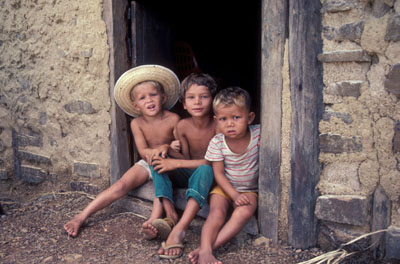St. Lucia and the Caribbean Collaborate to Support “At-Risk” Boys

Summary
St. Lucia and many of its Caribbean neighbors face a growing problem with keeping boys out of trouble. From leaving school, turning to crime, and abusing drugs and alcohol, the risky behaviors caused by unemployment and poverty contribute to social tensions and threaten tourist industry growth, which is so vital to Caribbean island economies. Lacking experience with programs to help “at-risk” boys, the Government of St. Lucia (GOS) reached out to the World Bank, which provided a South-South Facility funded grant to support St. Lucia’s participation in two related knowledge exchanges. St. Lucian program managers and technical staff in the Ministries of Youth, Education, and Labor, and some NGOs visited Brazil, Honduras, Panama, Jamaica, and Costa Rica to learn best practices used in programs for reducing crime among boys and promoting tourism. Policymakers and program staff from youth, labor, and education ministries in St. Lucia and 15 other countries then participated in a regional conference in Jamaica, also funded by the Bank’s South-South Facility, to exchange views on programs for at-risk youth.
The first exchange led to the design of a new program to promote youth participation and employment in the tourism sector in St. Lucia. At the subsequent regional conference, the youth, labor, and education ministry representatives shared experiences about success factors for at-risk youth programs. Each country team at the conference drafted an Action Plan for promoting and developing at-risk youth programs in their countries, and all participants and countries worked together to draft a Caribbean-wide Common Platform for Action specifying regional and country priorities for strengthening boys’ education and promoting productive behaviors.
“What I found interesting about the conference was the sharing among different people in the region about different initiatives,” said Dr. Stephen King, Director of the RISE1 NGO in St. Lucia. “We were shown a lot of initiatives that worked. One of the things that came across very strongly was the need to concentrate on early childhood development . . . which we are putting into our programs . . . and want to show to the government [of St. Lucia].”
Beneficiaries / Participants
St. Lucia, like many Caribbean nations, faces a growing problem of youth engaging in high-risk behaviors: boys are especially prone to drop out of school, commit crimes and violence, and abuse drugs and alcohol. Unemployment and poverty are the underlying causes of these behaviors, which contribute to social tensions and erode efforts to grow tourism, so critical to Caribbean island economies.
The Government of St. Lucia (GOS) did not have the experience and knowledge to devise community-based programs to support at-risk boys. At the request of the GOS, the World Bank’s South-South Facility funded a knowledge exchange linked to a World Bank tourist assistance and crime reduction program for St. Lucia called the South-South Exchange on Youth Employment in Tourism. St. Lucian program managers and technical staff in the Ministries of Youth, Education, and Labor—and some St. Lucian NGOs —visited Brazil, Honduras, Panama, Jamaica, and Costa Rica to learn best practices used in programs for reducing crime among boys and promoting tourism. Policymakers and program staff from youth, labor, and education ministries in St. Lucia and 15 other countries then participated in a joint World Bank and Caribbean Commonwealth Secretariat regional initiative, Keeping Boys Out of Risk, a conference for disseminating best practices and strategies for boys’ programs in Latin America and the Caribbean (LAC).
Moving forward
Before this initiative, no evidence-based approach or strategic direction was available to address boys' educational underachievement in St. Lucia or the region. Because of the exchange, the Government of St. Lucia and other governments in the Caribbean committed to Action Plans to address this issue. To assist countries’ design initiatives, the Common Platform for Action includes a database of successful experiences with tourist-industry based at-risk youth programs.
The 15 countries involved in the regional portion of this exchange have followed-up with a number of activities. These activities should uncover and promote further innovative solutions to help programs targeting at-risk boys in the Caribbean region. A number of countries also have planned to undertake impact evaluations of existing initiatives and approaches.

 China
China Colombia
Colombia Denmark
Denmark India
India Indonesia
Indonesia Mexico
Mexico Russian Federation
Russian Federation Spain
Spain United Kingdom
United Kingdom